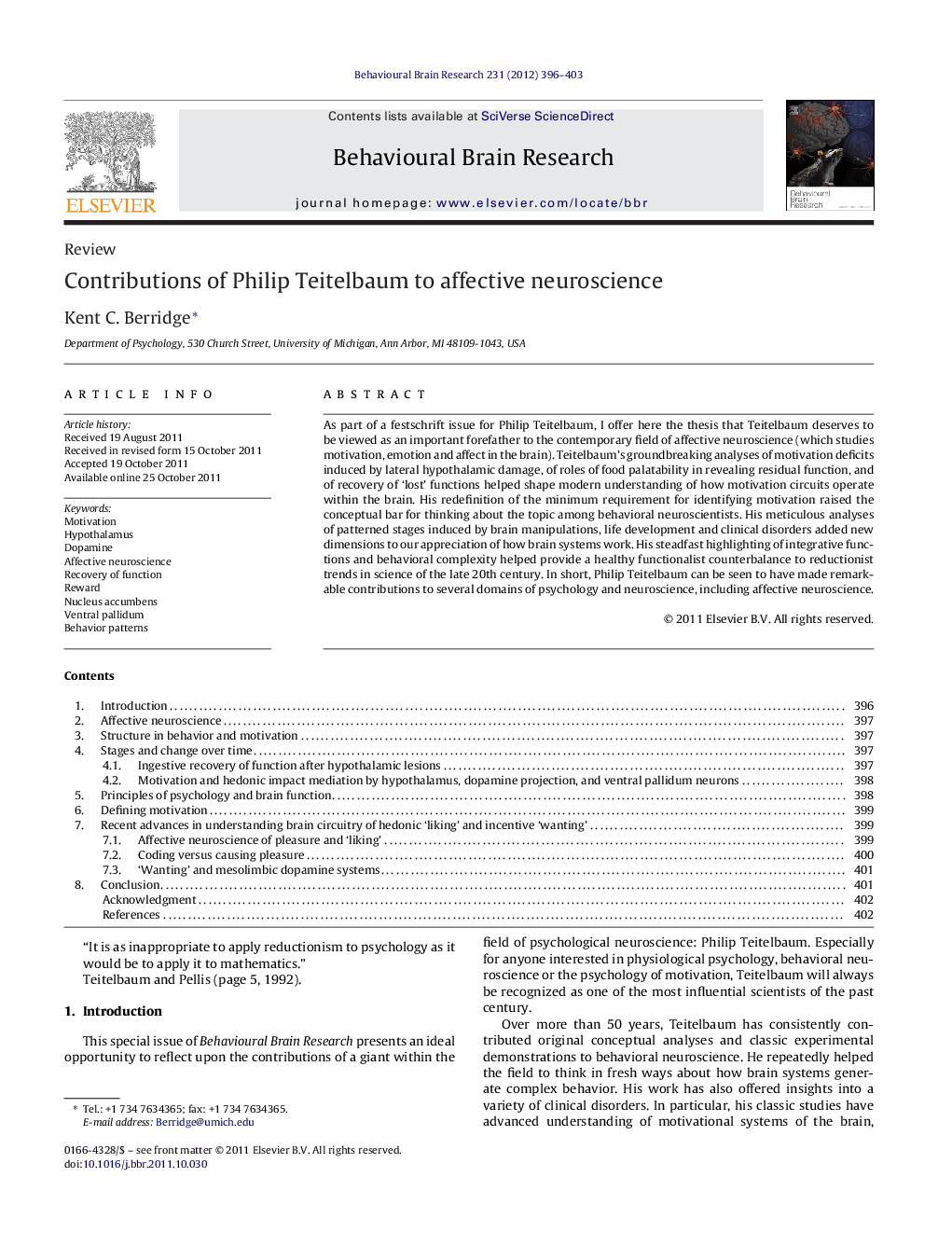| کد مقاله | کد نشریه | سال انتشار | مقاله انگلیسی | نسخه تمام متن |
|---|---|---|---|---|
| 4313084 | 1289984 | 2012 | 8 صفحه PDF | دانلود رایگان |

As part of a festschrift issue for Philip Teitelbaum, I offer here the thesis that Teitelbaum deserves to be viewed as an important forefather to the contemporary field of affective neuroscience (which studies motivation, emotion and affect in the brain). Teitelbaum's groundbreaking analyses of motivation deficits induced by lateral hypothalamic damage, of roles of food palatability in revealing residual function, and of recovery of ‘lost’ functions helped shape modern understanding of how motivation circuits operate within the brain. His redefinition of the minimum requirement for identifying motivation raised the conceptual bar for thinking about the topic among behavioral neuroscientists. His meticulous analyses of patterned stages induced by brain manipulations, life development and clinical disorders added new dimensions to our appreciation of how brain systems work. His steadfast highlighting of integrative functions and behavioral complexity helped provide a healthy functionalist counterbalance to reductionist trends in science of the late 20th century. In short, Philip Teitelbaum can be seen to have made remarkable contributions to several domains of psychology and neuroscience, including affective neuroscience.
► Philip Teitelbaum contributed revolutionary advances to affective neuroscience.
► Recovery of function after brain damage provided major insights.
► Teitelbaum's operant definition of motivation was important.
► Teitelbaum's emphasis on systems-level processes counterbalanced reductionism.
Journal: Behavioural Brain Research - Volume 231, Issue 2, 1 June 2012, Pages 396–403